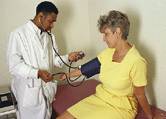
TUESDAY, Dec. 18 (HealthDay News) — U.S. adults with autism are more likely to report poor health care experiences than those without autism, a new study reveals.
Researchers conducted an online survey of 209 adults with autism and 228 adults without the disorder and found that those with autism reported more unmet health care needs, greater use of emergency departments, and lower rates of preventive services such as Pap smears (a cervical cancer screening test).
The adults with autism were also less satisfied with health care provider communication and felt less comfortable navigating the health care system and managing their health, the Oregon Health & Science University researchers found.
Autism affects about 1 percent of adults in the United States, according to the authors of the study, which was recently published in the Journal of General Internal Medicine. Autism is a developmental disorder that impairs social interaction and communication.
“Like other adults, adults on the autism spectrum need to use health care services to prevent and treat illness. As a primary care provider, I know that our health care system is not always set up to offer high-quality care to adults on the spectrum; however, I was saddened to see how large the disparities were,” study principal investigator Dr. Christina Nicolaidis, an associate professor of medicine, said in a university news release. “We really need to find better ways to serve them,” she added.
The findings have important implications related to changes in the newly released Diagnostic and Statistical Manual of Mental Disorders (DSM-V), which combined autistic disorder, Asperger’s disorder and pervasive developmental disorder not otherwise specified into one new category of autism spectrum disorder, the researchers said.
The new criteria are controversial and some studies predict a significant reduction in the number of people who will meet criteria, especially among patients with Asperger’s disorder or without intellectual disabilities.
“The existence of health care disparities in our sample, most of whom had diagnoses of Asperger’s and/or high educational attainment, highlights the possible negative consequences of stricter criteria,” Nicolaidis said. “Not having a diagnosis may deprive patients and their providers of insights, strategies, and accommodations to improve health care experiences.”
More information
The National Alliance on Mental Illness has more about adults with autism.

